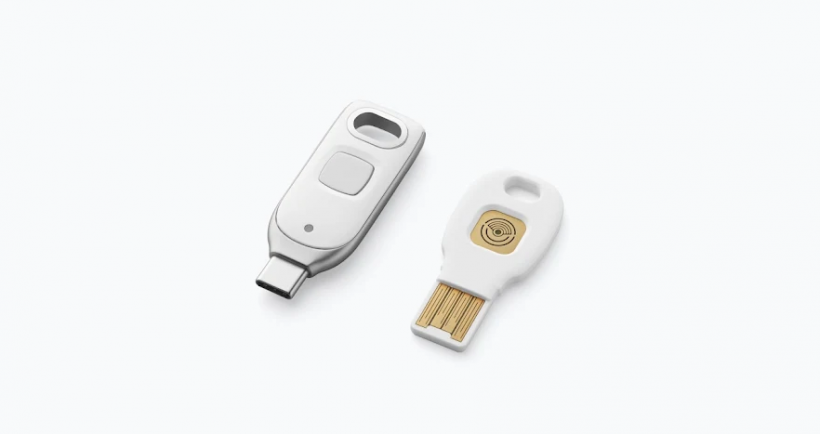Google's Titan Security Keys have added a new feature today, centering on allowing its owners to store Passkeys in the device, further expanding the capabilities for a safer login. Physical security keys have been around to bring authentication to various logins, and here, it also stores password offline, allowing a more secure experience that needs to be inserted when needed.
For users who are skeptical or want a safer login, Security Keys have been growing more popular throughout the years, now seeing Google's Passkeys integration.
Google's Titan Security Keys Add Passkey Storage Feature

(Photo : Google Store)
The latest Titan Security Keys from Google is now a FIDO2 model that allows the owner to store Passkeys on the device, allowing a more secure login for the internet company's platforms to use. This new device further expands two-factor authentication as an alternate for users who own it, meaning that whenever logging in, users need to have this plugged in on their device.
One of the main features of this is that users no longer need to wait for text messages or authenticate via trusted devices, as this will allow them to enter their username or email, and then inserting the security key.
Moreover, these new Titan Security Keys work with all FIDO-enabled services, even for third-party platforms, devices, and others.
Read Also: Apple Launches OS Support for Security Keys | Here's How to Set Up
Is it Safe to Use Physical Security Keys for Logins?
Google's release centers on new USB-A and USB-C Titan keys that feature NFC as well, with the thumb drive-resembling physical device capable of storing up to 250 accounts thanks to its FIDO2 upgrade. Security Keys add another layer of safety that gives the public peace of mind, designed to deliver another layer of authentication through a plug-and-play method.
Physical Security Keys' Safety Focus
Back in 2018, Google looked into turning up the tempo for security, centering on physical keys that would help enable account authentication where it would store their password and have no need to enter it on the mobile device. The Titan Security Key came out five years ago, and earlier, it only came out with the USB-A option, which was then followed by the USB-C version.
Apple also took this technology and integrated it into their devices, allowing the physical keys to be inserted into their iPhones and Macs for improved security for those who do not trust online or app-based password storage. Since iOS 16.3, Apple allowed these security keys to store Apple ID for two-factor authentication, with some specific for iPhones with Lightning ports.
Other companies have delivered on physical devices for security integration and storing passwords, cross-compatible with different brands and devices, and not only for Apple and Google. Now, the latest update for the Titan Security Keys features Passkeys integration that would deliver biometric logins and would only enable its use when the physical device is inserted.
Related Article: Google Faces Legal Battle: CEO Sundar Pichai Testifies Again in High-Stakes Antitrust Trial






